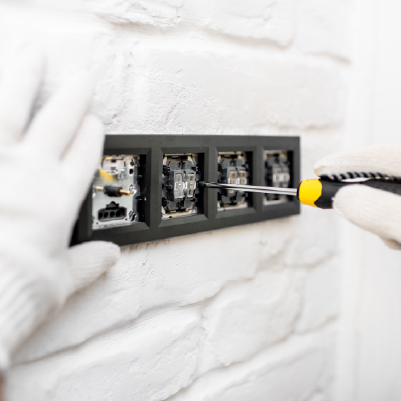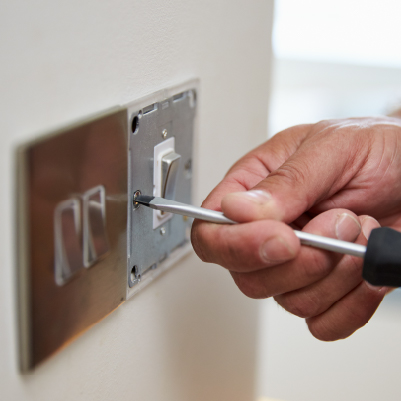What is involved in electrical testing?
Ignoring electrical issues within your property can have fatal consequences. Many homeowners can put off getting electrical testing as they feel it is too expensive. However, this isn’t always the case.
While you can identify some electrical concerns visually, regular electrical testing can help you find issues before they become a significant problem and give you peace of mind that your property is safe and your electrics are in good condition.
What is electrical testing?
An electrical inspection and testing is the periodic testing of all the electrics within your home. An electrical inspection or periodic inspection and testing looks for issues that might not be visible to the naked eye, from your electrical circuit to your electrical appliances.
The trust will look out for electrical concerns such as;
- Any potential electric shock risks
- Potential fire hazards
- Overloaded electrical equipment or circuits
- Defective electrical work
- Any lack of earthing or bonding
The test will also be carried out on wiring and any fixed electrical equipment you might have. This ensures everything has been checked over to rule out or identify any problems.
The Electrical Installation Report
Your testing engineer will issue you a certificate once a periodic test has been successfully completed on your system. This is referred to as an Electrical Inspection Condition Report in the industry (EICR). The report will detail any deterioration, damage, flaws, or other potentially harmful parts of your electrical system and anything that is not in compliance with current safety requirements or that could put people at risk. If this is the case, the report will be deemed unsatisfactory.
If the report highlights any issues, you should ensure that these are corrected as soon as possible by a qualified electrician. Problems within your electrical system will be classified in one of three ways;
- C1 – ‘danger is present, action is required immediately.
- C2 – remedial action is needed urgently as there are potential dangers
- C3 – improvements are recommended. This is the only code that can appear on an EICR and still pass the test.
Failing to do so can be disastrous, as hiring unqualified persons to carry out any remedial work.
Who should have periodic electrical testing, and when?
British Standard BS 76719 (IET Wiring Regulations) states that all homeowners, businesses, and landlords conduct regular testing at suggested intervals. However, unlike landlords and companies, it isn’t a legal requirement for homeowners to have their electrics checked. That being said, this is typically carried out when buying or selling a home, and homeowners should get into the habit of having an electrical test every few years for safety.
- Landlords should have their properties checked every five years or every tenancy change.
- Homeowners should carry out inspections every ten years. In cases of a swimming pool being on the property, this is changed to every year.
- Businesses should carry out a test every five years.
- Every three years for caravan owners
It is important to remember that these are guidelines, and you can have testing carried out more frequently or if you feel that there might be an issue with your electrics.
For more information on periodic electrical testing or to enquire about any electrical work your home or company may require, contact us at Jack Jones Electrical for a high-quality, honest service for electrical jobs of all sizes.





